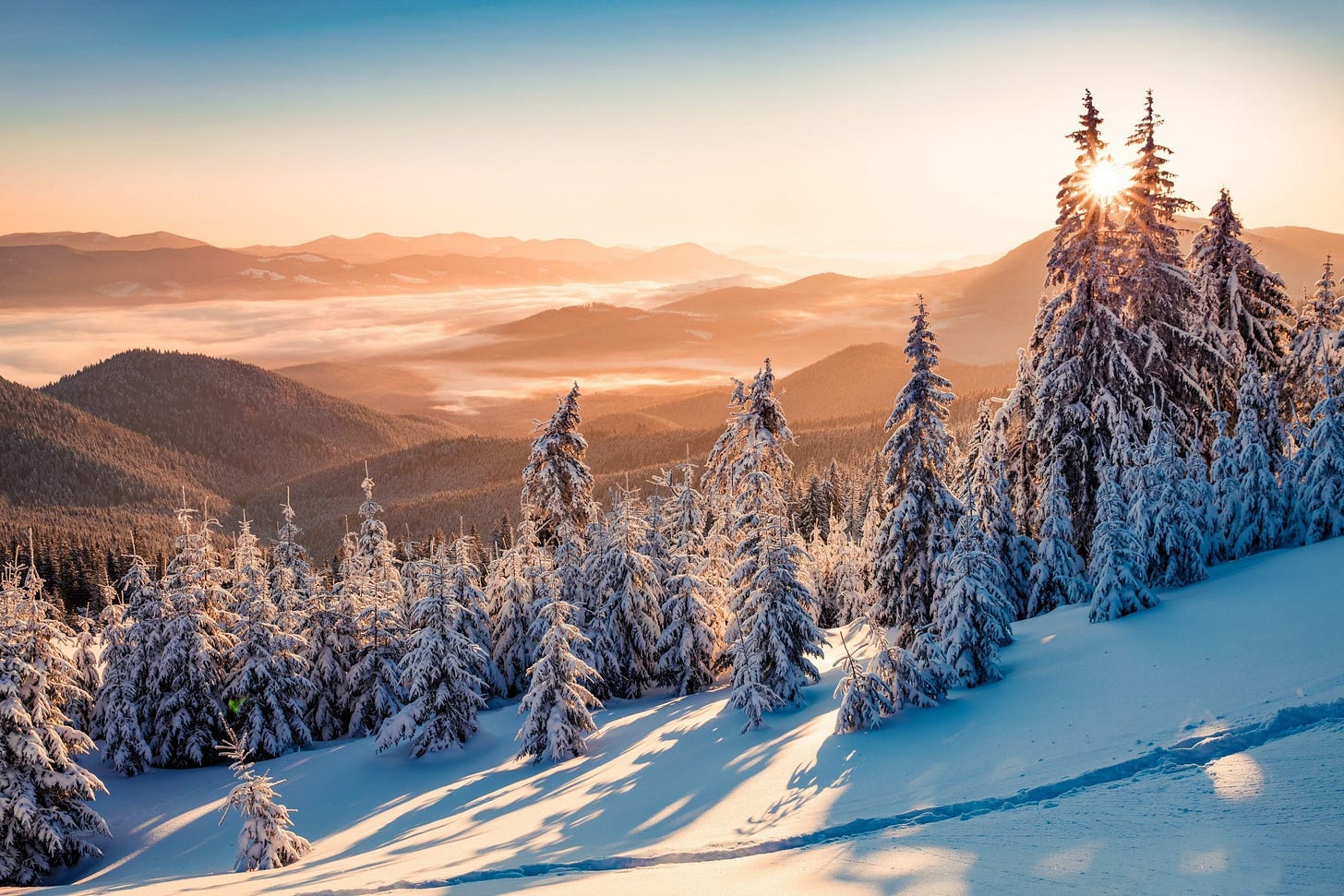Seasonal Dis-order
We folks do respond to seasonal changes in daylight, just like the animals. So what happens as the season changes from summer into winter? Our modern conveniences may knock us out of synch, but our clocks can be reset with sunlight exposure. How quickly can our circadian periodicity be changed?
A recent study sent 5 campers out for a week right around the time of the winter solstice, measuring their sleep and hormonal rhythms. With increased time spent outdoors, their internal clocks [measured by the timing of when melatonin levels spiked] shifted 2.5+ hours earlier. Their sleeping patterns followed their melatonin levels, going to sleep at earlier times.
What time of year is your short-term memory working best? Winter or summer? A study looked at 14 men and 14 women, average age 21, at different times of year between May 2010 and October 2011. They spent 4.5 days in laboratories where they had no access to the outside world. Their brain scans evaluated how they handled tasks testing their abilities to pay attention and remember things on a short-term basis. Data indicated that attention skills were best near the summer solstice in June and worst near the winter solstice in December. Their short-term memory was best in fall and worst in spring.
Christmas Eve is a very busy night for EMS
Newly reported by Swedish researchers: the risk of suffering a heart attack spikes on Christmas Eve. They analyzed the exact timing of 283,014 heart attacks reported to the Swedish coronary care unit registry (SWEDEHEART) over a 16-year period from 1998 to 2013. The two weeks before and after a holiday—and the same period the year before and after a sport event—were set as control periods.
On Dec. 24, the risk of a heart attack is 37 percent higher than normal, hour of maximum risk is 10 p.m. On Christmas itself, the increase in risk is less at 29 percent.
In comparison, they found an elevated risk on New Year's Day (by 20 percent) but not on New Year's Eve, Easter or Good Friday. Risk was 12 percent higher on Midsummer, [a Swedish holiday on the eve of the summer solstice that is celebrated with food, drink, song and maypole dancing.]
Hmmm, what is the culprit … All that baking and cooking? Midnight Mass choraling? Last minute wrapping of gifts? Trying to assemble the kids’ toys? Totaling up the cost of festivities?
But don’t sleep in too late …
Sleep regularity reduces risk of premature death from any cause by 20% to 48% when compared to those with highly irregular sleep. [Irregular sleep habits included inconsistent sleep and wake times, interrupted sleep and napping.] People who got long duration, as well as consistent sleep, had the lowest mortality risk.
My past Newsletter on Human Hibernation, for those interested in learning more: Human Hibernation What are thyroid hormones' roles?
Wishing all my readers a bright shiny sunny new year ahead!
REFERENCES
Stothard and McHill et al.: "Circadian Entrainment to the Natural Light-Dark Cycle across Seasons and the Weekend" www.cell.com/current-biology/f … 0960-9822(16)31522-6 , DOI: 10.1016/j.cub.2016.12.041
C Meyer, et al. Seasonality in human cognitive brain responses. PNAS, 2016; www.pnas.org/cgi/doi/10.1073/pnas.1518129113
Christmas, national holidays, sport events, and time factors as triggers of acute myocardial infarction: SWEDEHEART observational study 1998-2013, BMJ (2018). DOI: 10.1136/bmj.k4811 , www.bmj.com/content/363/bmj.k4811
DP Windred, et al. Sleep regularity is a stronger predictor of mortality risk than sleep duration: A prospective cohort study, Sleep, 2023;, zsad253, https://doi.org/10.1093/sleep/zsad253







Over the years I've learned to follow the seasonal changes and allow myself to be less productive during the winter. I plan less and don't stress if it seems I'm doing little but the necessities. Summer comes and my energy returns every year. I believe we're designed this way.